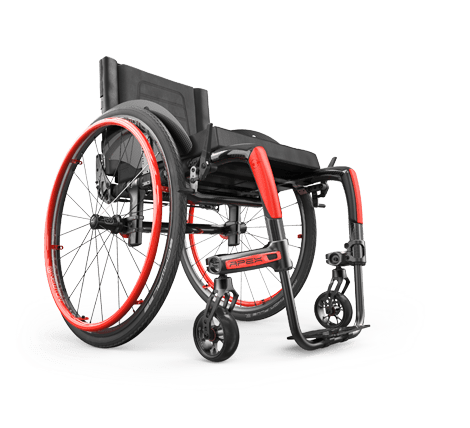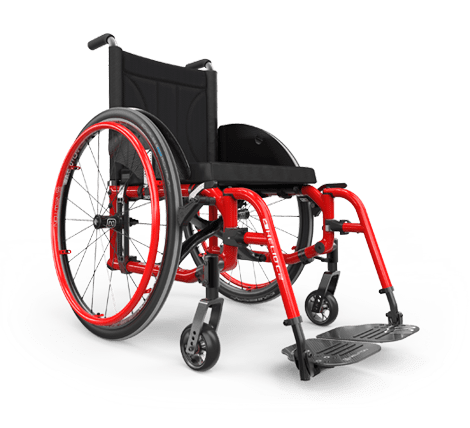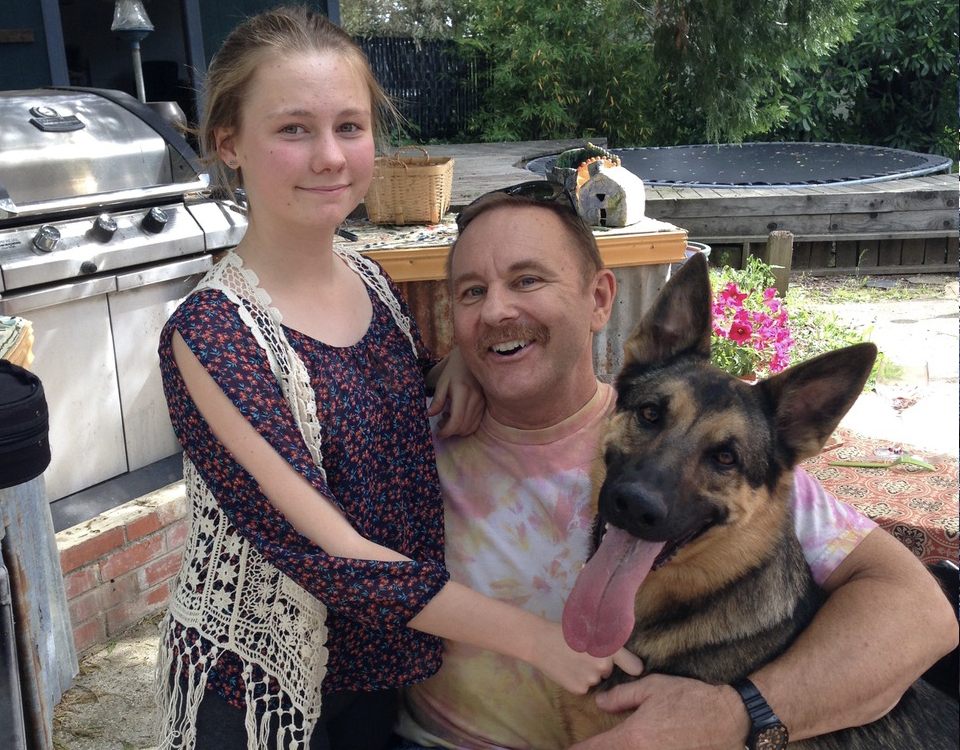Perform daily skin checks with a mirror
SCI rehab taught me the ritual of checking my skin with a mirror every night and morning, in my experience has proven to be a crucial tool to help avoid a pressure sore—a potential life-threatening injury that can take months or years to heal. This advice has literally saved my butt many times by enabling me to catch off-colored pink or red skin--warning signs of skin breakdown--in time to stay off of that area for as long as it takes for the skin to return to normal color, and address what caused the problem. I use a two-sided “round makeup” mirror that has a stand for hands-free skin examination, available online and at drug stores for about $6.
Among the times mirror skin checks have caught skin problems prior to damage include a time I was demoing a new state-of-the-art cushion. The cushion looked excellent on pressure mapping, just as good as a cushion I was currently using and was serving me well, so I sat on the new cushion the rest of the day. That evening a mirror skin check revealed the skin around both ischia (butt bones) was red and angry, it didn’t return to normal color until the next morning. Although that cushion works great for many people, needless to say, it wasn’t right for me. Another “mirror save” example is when I decided to go horseback riding in the mountains of Costa Rica. An evening mirror check revealed the adaptive saddle pad must have shifted and my butt was red and purple. I spent the next 36-hours of my vacation in bed before the skin returned to normal, this saved my skin and the rest of the vacation.
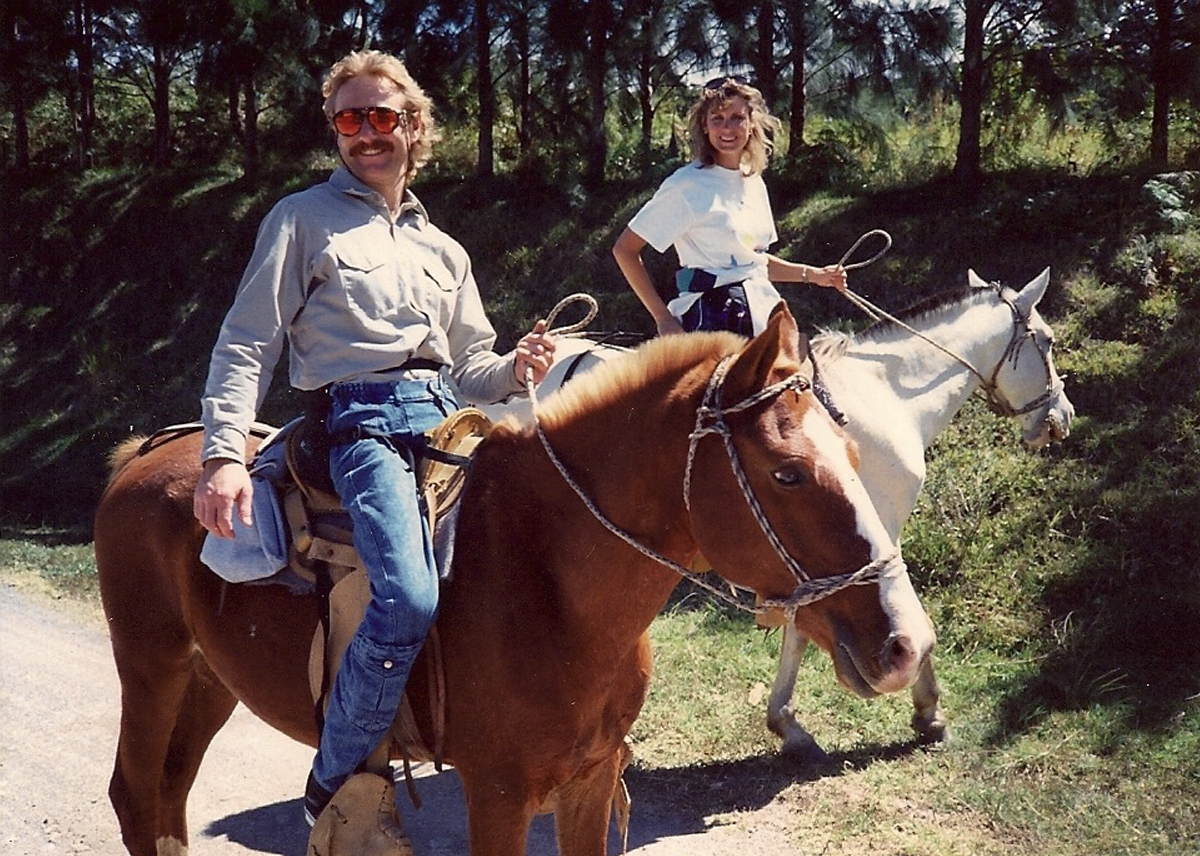
Check out peer support groups and adaptive sports programs
One of the places that helped me learn about accepting, surviving and thriving in life with SCI was attending a weekly SCI peer support group meeting put on by the rehab center. I continued to attend meetings after I returned home. There are over 150 peer support groups in North America and many of them offer online meetings. See resources at the end of this article.
Another area where I learned a great deal, and had a blast, has been participating in various adaptive sports programs and adaptive sports/adventure camps doing activities ranging from off-road hand cycling and sit skiing to adventure racing, as well as mellow pastimes including bird-watching on an adaptive trail—which was really cool. Finding an adaptive sports program these days is as simple as typing “adaptive” in front of the activity you are interested into a search engine, as in “adaptive mountain biking.”
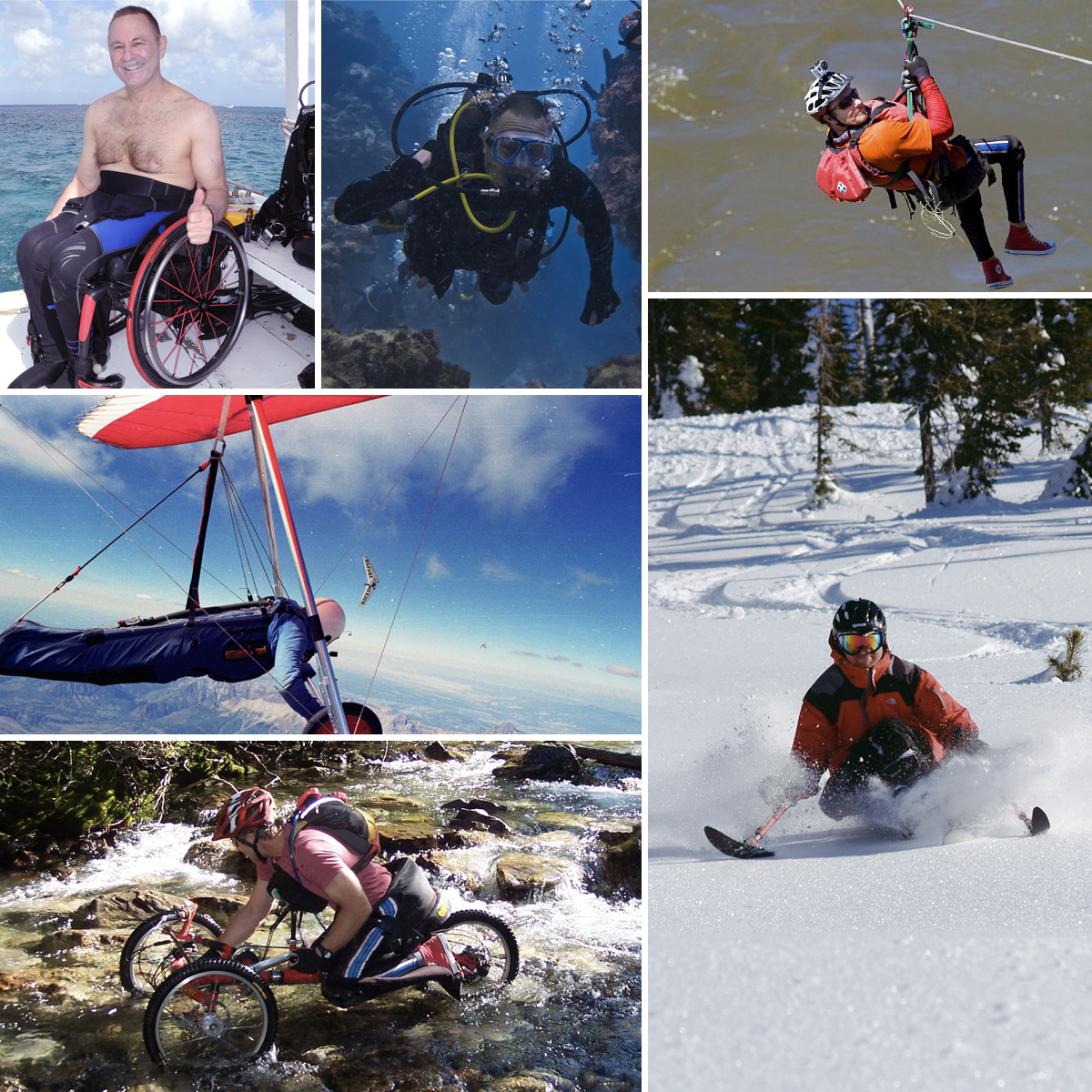
In my experience both peer support and adaptive sports are great places to learn a myriad of SCI life hacks from seasoned wheelchair users. And peer support and adaptive sports have led to many amazing friendships that have a bonus of sharing the common bond of living with SCI, something which provides perspective and support during challenging times, and better yet, often fodder for uproarious laughter which often comes from challenging situations plus time and re-telling the story.
Check out vocational rehabilitation
My SCI not only took away my ability to walk, it took away my work skills in landscaping and professional skiing. I was advised by a counselor at the rehab center that my SCI qualified me for education and/or job training for the Department of Vocational Rehabilitation. Voc Rehab helped me lay out a plan to attend college, and paid for my education including books and travel expenses.
Attending college that first day was terrifying, especially as a 25-year-old former D and F student who never finished high school. It turned out to be one of the most exciting and rewarding endeavors of my life. I buckled down and earned top grades and a bachelor’s degree in Communication—something that led to a variety of jobs, an Emmy award in 1996 and a life of travel and adventure.
A Friend’s Words of Wisdom on Life With SCI and Potential Cure
Perhaps the most valuable advice when I was newly injured came from a close friend who was in his 3rd year as a T6 paraplegic. Although outwardly I had accepted that my paralysis was permanent, secretly hoped for a cure. When I shared this hope with my friend, he offered what I consider the best words of wisdom for thriving not only with SCI but life in general, saying, “Let’s say they do come up with a cure for SCI but it takes thirty or forty years, or doesn’t come at all. Now project yourself forward thirty-five years for a moment. Think about all the things you dream of doing in your life, things that you ‘could’ have done during all those years thinking about the future instead of focusing on the present. Now start doing it today and don’t stop.” That advice has led me to travel and adventures ranging from scuba-diving wrecks of Spanish galleons and pristine tropical reefs to hang-gliding at 20,000 feet to the most rewarding adventure: being a great dad to my twenty-year-old daughter Sarah.
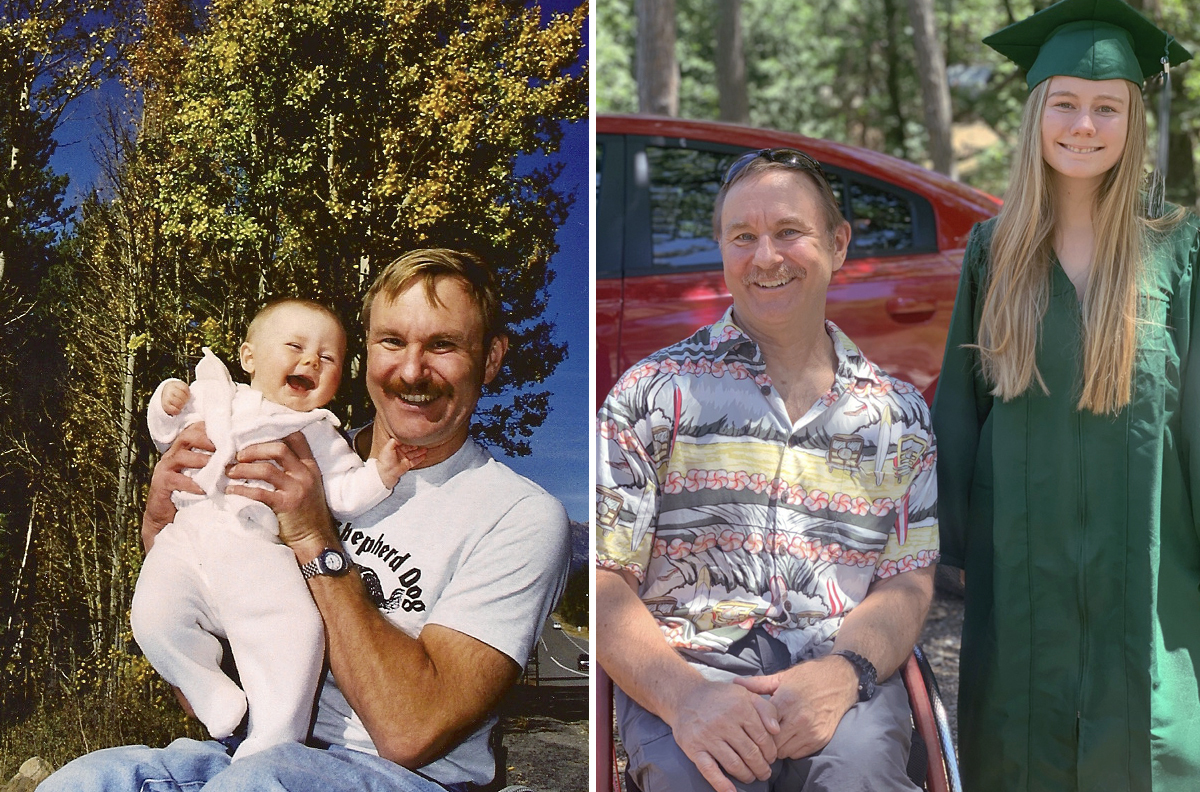
Resources
SCI Support groups:
Christopher Reeve Foundation Support
United Spinal Peer Support




